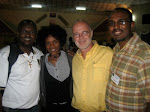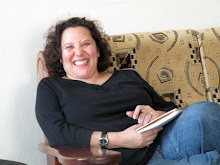Here, to be landless is to be dispossessed. What future can be imagined apart from land, from a place to be rooted? You take the land you can get your hands on - as a tenant farmer with little reward and not enough food for your family. Or maybe you wander the streets of the city looking for some work, maybe you serve in someone else's home to provide enough money to feed your children. If you are like the Batwa people, maybe the government gives you some sterile piece of land to inhabit - temporarily.
Our Batwa friends in Bubanza live on such a piece of land. It is dry as a bone, far from any water source, hanging on the side of a road. They are but temporary residents here, so all structures are provisional, at best. No infrastructure can be invested in land that is not yours to develop. How can you be settled? How can you plan for a future from this place? (This is a rhetorical question, because to walk this village you know that a future is no where in sight.)
Israel was deeply connected to the land. (If you are in doubt, read Walter Brueggeman's eloquent and insightful book The Land.) They were people connected to a place, it was a definitive feature of their self-understanding. The period of wandering in the desert was an arid season for the Hebrews in large part because they were landless. They were wandering, disconnected, without a place, nomads getting nowhere fast. Their hope was in God's word, His promise of... land. So while they were often disoriented and in despair, they could cling to the hoped-for Promised Land. From the desert there were moments of clarity... vistas that opened their eyes to the land that would be theirs someday. They did have a future, if only they could reach the Promised Land.
As I consider the importance of land to a Burundian, it is so similar to Israel's own need to be grounded, to have a physical place to cultivate a future. Our Batwa friends are disoriented and dislocated right now, a landless people in their own country. They stand to inherit none, they cannot afford to purchase any. And as Burundi's population now is close to 9 million, there is little available land for anyone. So many parcels of land are disputed, several families claiming them and fighting for them. So what hope is there that acreage will be found for the Batwa to settle. Do they have a Promised Land in their future? Can they dream, and hope and cling to a promise as Israel did their 40 years wandering in the desert?
I believe that there is a Promised Land for the Batwa. I believe that God is bringing a blessed land into their possession in the coming season. I believe that the season of dislocation will soon come to an end, and they will inherit land. This will come as a gift from the government, but not without the fervent advocacy of friends and prayers of many. And it won't come without some contending with the powers that be, as no one is eager to give up land for 'the least of these.' But something is coming for the Batwa... and many of you are part of that promised future. We are praying for, believing for, waiting for the Promised Land!







No comments:
Post a Comment